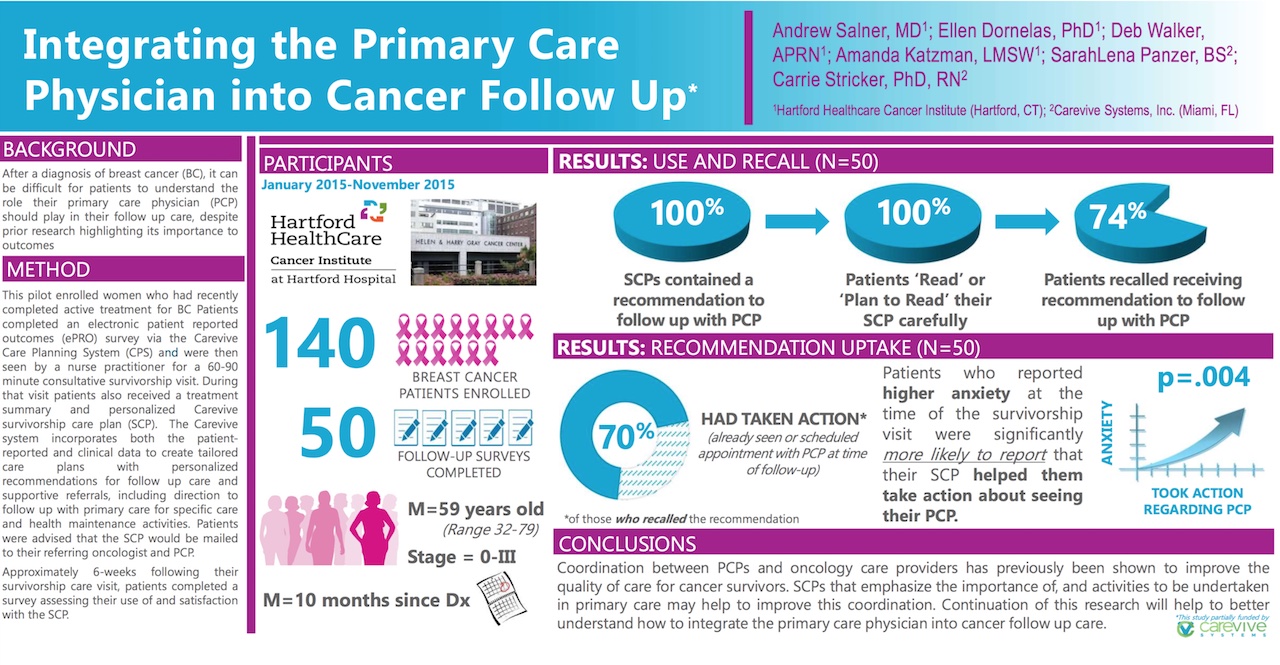
Integrating the Primary Care Physician into Cancer Follow Up
Andrew Salner, MD1; Ellen Dornelas, PhD1; Deb Walker APRN1; Amanda Katzman, LMSW1; SarahLena Panzer BS2, Carrie Stricker, PhD, RN2
1Hartford Healthcare Cancer Institute (Hartford,CT); 2Carevive Systems,Inc.(Miami,FL
Background
After a diagnosis of breast cancer (BC), it can be difficult for patients to understand the role their primary care physician (PCP) should play in their follow up care, despite prior research highlighting its importance to outcomes.
Method
This pilot enrolled women who had recently completed active treatment for BC Patients completed an electronic patient reported outcomes (ePRO) survey via the Carevive Care Planning System (CPS) and were then seen by a nurse practitioner for a 60-90 minute consultative survivorship visit. During that visit patients also received a treatment summary and survivorship care plan (SCP). The Carevive system incorporates both the patient- reported and clinical data to create tailored personalized Carevive care plans with recommendations for follow up care and supportive referrals, including direction to follow up with primary care for specific care and health maintenance activities. Patients were advised that the SCP would be mailed to their referring oncologist and PCP.
Approximately 6-weeks following their survivorship care visit, patients completed a survey assessing their use of and satisfaction with the SCP.
Conclusions
Coordination between PCPs and oncology care providers has previously been shown to improve the quality of care for cancer survivors. SCPs that emphasize the importance of, and activities to be undertaken in primary care may help to improve this coordination. Continuation of this research will help to better understand how to integrate the primary care physician into cancer follow up care.




